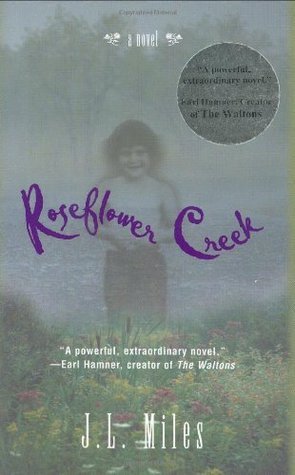
The Moonflower Vine
Book Description
Under the haunting glow of moonlit nights, family ties are tested and secrets unravel in a tapestry of love and loss. The Larkin family’s idyllic life on their farm is shattered by unspoken desires and simmering tensions, as each member grapples with their own dreams and disappointments. In a world where hope blooms like the elusive moonflower, will they find the strength to confront the truths that bind them? With passion and heartache interwoven through every page, the story challenges the very notion of happiness. What sacrifices must one make to protect those they love?
Quick Book Summary
The Moonflower Vine by Jetta Carleton is a lyrical and emotionally rich portrait of the Larkin family, living on a Missouri farm in the early 20th century. Over the course of several decades, the novel unfolds through the perspectives of the family members: stern but loving Matthew, resourceful Callie, and their four daughters, each with distinct ambitions and burdens. As years pass and secrets come to light, the Larkins’ seemingly idyllic life is tested by hidden passions, disappointments, and evolving dreams. At the core is the family’s annual summer reunion, a ritual binding them together despite the cracks beneath the surface. Carleton deftly explores the beauty and pain of love, the complexity of family loyalty, and the sacrifices demanded by time and circumstance.
Summary of Key Ideas
Table of Contents
The Complexity of Family Ties
Set against the Missouri countryside in the early 1900s, The Moonflower Vine paints an evocative portrait of the Larkin family’s rural life. The story is primarily experienced through the perspectives of the four daughters—Jessica, Leonie, Mathy, and Mary Jo—and their parents. The Larkins carve out a humble yet cherished existence, with annual summer gatherings acting as a touchstone for sharing love, reliving memories, and maintaining unity. But beneath the bucolic tranquility, unresolved tensions and unspoken desires simmer, threatening to disrupt familial harmony.
Secrets and Personal Sacrifice
Personal secrets and hidden heartbreaks shape the lives of every Larkin. Matriarch Callie clings to her faith and patience, while Matthew, the schoolmaster father, wrestles with deep-seated regret and longing. Each sister faces her own crossroads: Jessica’s intellectual ambitions collide with societal expectations; Leonie struggles between independence and conformity; Mathy’s rebellious spirit leads to hard choices; and Mary Jo, the youngest, tries to balance her need for security with her dreams. The novel illustrates how concealed truths can corrode relationships, yet also how revelation can offer the first step to healing.
Individual Dreams versus Family Duty
The characters’ journeys underscore the tension between individual aspirations and family duty. As the daughters mature and leave for the wider world, their return each summer invites reflection on what has changed—and what endures. Family rituals, stories of the past, and the annual blooming of the rare moonflower vine become metaphors for hope and renewal, even as each Larkin contends with the price of loyalty and personal sacrifice. The women in particular must navigate the era’s limitations while trying to honor their deepest selves.
The Passage of Time and Memory
Carleton’s narrative moves fluidly through time, weaving together memory, nostalgia, and harsh realities. The encroaching forces of modernity, social transformation, and the inevitability of loss shape the Larkin family’s destiny. The reader witnesses moments of youthful promise alongside the gradual realization of dreams deferred or altered. The passage of time tests the Larkins’ resilience and capacity for forgiveness as they learn to accept each member’s flaws and choices.
Forgiveness and Acceptance
Ultimately, The Moonflower Vine is a meditation on love’s endurance amid disappointment, the complexity of belonging, and the possibility of forgiveness. The final chapters demonstrate how understanding—and accepting—the hidden facets of those we love can bring a hard-won peace. Through lyrical prose and empathetic insight, Carleton delivers a classic exploration of family life, asking whether lasting happiness is found not in perfection, but in the courage to face the truth and cherish what remains.
Download This Summary
Get a free PDF of this summary instantly — no email required.





